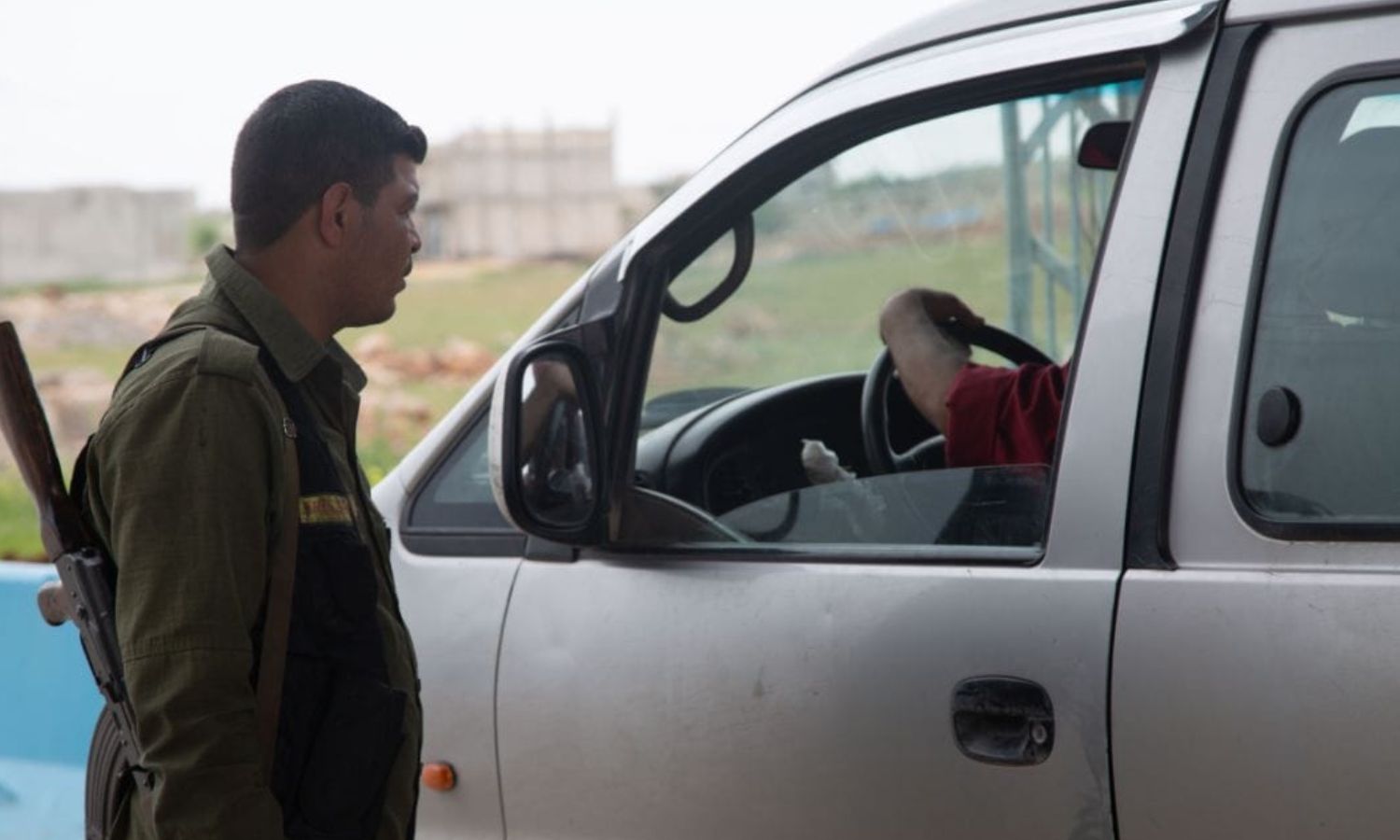



In recent days, the Internal Security Forces (Asayish), affiliated with the Autonomous Administration of North and East Syria (AANES), began summoning the displaced from Deir Ezzor province residing in al-Hasakah province, specifically in the city of Qamishli, through neighborhood heads or via phone calls, for the purpose of renewing the “Expat Card” that allows their legal residence in the city.
Abdul Sattar (a pseudonym for security reasons), a seventy-something-year-old man, was summoned by the neighborhood chief to his house, to inform him of the need to review the Asayish office in the Halco neighborhood in Qamishli, as part of routine procedures by the Autonomous Administration in its controlled areas. However, he discovered that the purpose of the visit was to renew his “Expat Card” to avoid deportation from the city.
Abdul Sattar presented his identification documents to the responsible person at the Asayish center, who warned him that his “Expat Card” had expired and needed to be renewed. Although the man tried to renew the card, the office specialized in the affairs of displaced people in the Autonomous Administration has been closed for months, and his card is worn out as it is made of cardboard, according to what he told Enab Baladi.
While the Internal Security Forces (Asayish) did not explain to people the reasons for the closure of the office dealing with the affairs of the displaced in the Autonomous Administration, Enab Baladi repeatedly contacted the office over the past few days but did not get a response.
For more than half an hour, Abdul Sattar waited outside the Asayish office while an employee examined his papers. After review, he was informed along with four other individuals waiting beside him that they have to review the same office again after ten days.
What worries Abdul Sattar is the unclear nature of the documents checking process initiated by the Autonomous Administration in an unannounced way in al-Hasakah. He sees that the expiration of the “Expat Card” he holds threatens him with “deportation” despite owning a property contract in the city of Qamishli, as he told Enab Baladi.
Ahmed is a pseudonym for a 60-year-old man who preferred not to mention his name due to security concerns. He told Enab Baladi that he arrived in al-Hasakah in 2013 after his house and farm in al-Bukamal, east of Deir Ezzor, were destroyed by shelling from the Syrian regime. Despite living in al-Hasakah since then, he was recently summoned to the Asayish office in Qamishli due to the expiry of his card.
Ahmed said he was treated inappropriately despite his documents being in order, and was forced to wait for more than six hours.
After exhaustive efforts by acquaintances and neighbors, he was given a short window to bring a guarantor from the local area and renew his card. However, he fears that a new sum may be requested from the guarantor to renew the sponsorship, which could deter him from providing a guarantee for him.
The Autonomous Administration requires displaced people from other areas of influence to obtain an “Expat Card” to allow them to stay in al-Hasakah. This card requires a local guarantor who pays an amount to the Autonomous Administration in exchange for allowing the displaced person to reside in al-Hasakah with his sponsorship.
Ahmed pointed out that he was not alone in the Asayish center; there were many displaced people from various regions who were threatened with relocation to other areas if they did not renew their previously obtained “Expat Card.”
Displaced people from the city of Deir Ezzor towards Qamishli, who spoke to Enab Baladi, said that they cannot return to their original cities due to the presence of the Syrian regime and Iranian militias. Additionally, members of their families are being pursued by the Syrian regime on various charges, including mandatory conscription.
In addition to security reasons for not returning, Ahmed and Abdul Sattar said their homes were destroyed due to recent bombing conducted by the US against Iranian militias in the area at the beginning of February, making the option of return non-existent due to the lack of shelter for them in their original towns.
An element of the Internal Security Forces (Asayish) in al-Hasakah (who preferred anonymity for security reasons) told Enab Baladi that the Autonomous Administration is currently reviewing information and cards of all displaced and new arrivals to the areas it controls, without clear reasons.
He added that the fears of the displaced regarding “expulsion” are not realistic, as such actions have not been previously undertaken by the Autonomous Administration.
Enab Baladi repeatedly attempted to contact officials in the Internal Security to get an official position on these procedures, but did not receive any clarification in this regard up to the moment of publishing this report.
if you think the article contain wrong information or you have additional details Send Correction